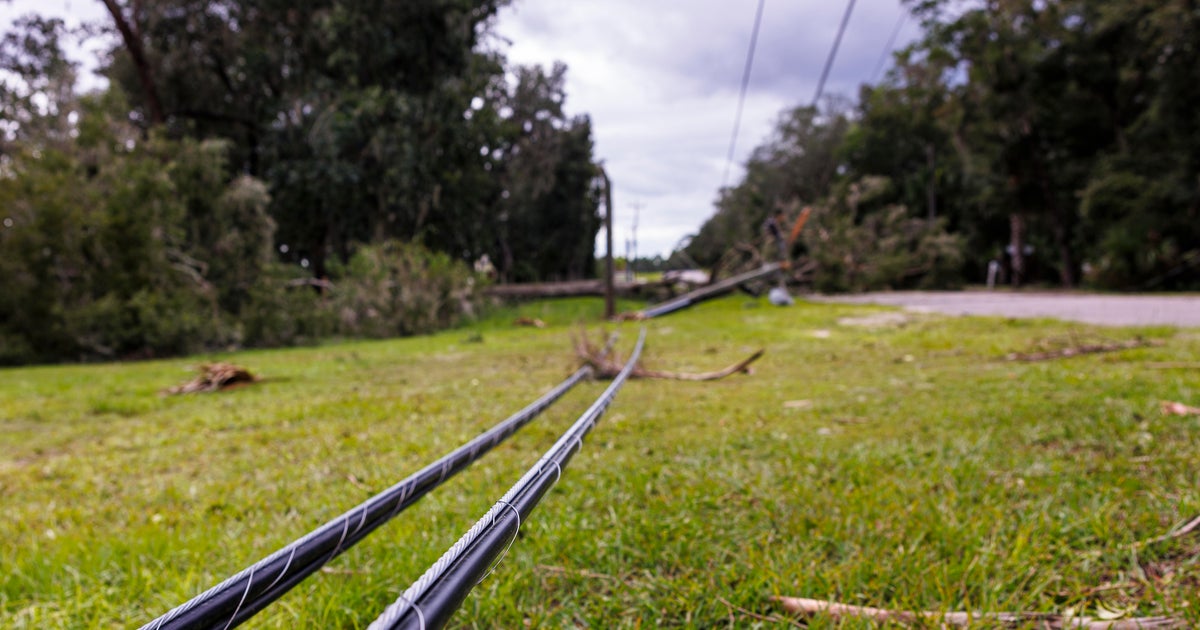Trump's strikes on Iran set back nuclear program by months, initial intel assessment finds
An initial classified assessment found the U.S. strikes on Iranian nuclear facilities set back Tehran's nuclear program by a matter of months, according to three sources familiar with its contents.
The assessment, produced by the Defense Intelligence Agency, the Pentagon's military intelligence wing, said the strikes caused the entrances to two nuclear enrichment facilities, including Fordo, to be sealed off. Resumption of the enrichment program may be determined by how long it takes Iran to clear the entrances and make repairs to electrical and water supplies, two sources familiar with the report's findings said.
The DIA assessment also indicates some of Iran's enriched uranium stockpile was moved before the strikes, one of the sources said.
"This is a preliminary, low confidence assessment — not a final conclusion — and will continue to be refined as additional intelligence becomes available," a senior DIA official told CBS News on Wednesday. "We have still not been able to review the actual physical sites themselves, which will give us the best indication."
The official added that the agency was "working with the FBI and other authorities to investigate the unauthorized disclosure of classified information."
A complete battle damage assessment is still being assembled, chairman of the Joint Chiefs of Staff Gen. Dan Caine said on Sunday.
"Final battle damage will take some time, but initial battle damage assessments indicate that all three sites sustained extremely severe damage and destruction," Caine said.
President Trump said in an address to the nation following the strikes that "Iran's nuclear enrichment facilities have been completely and totally obliterated."
He reiterated that assertion Wednesday morning in the Netherlands, where he was attending a NATO summit, telling reporters the "they're not going to be building bombs for a long time."
"I think that Israel is going to be telling us very soon, because Bibi [Israeli Prime Minister Benjamin Netanyahu] is going to have people involved in that whole situation. We hear it was obliteration, it a was a virtual obliteration," Mr. Trump said, adding that he did not believe the Iranians "had a chance to get anything out" of their underground nuclear facilities before the strikes.
Mr. Trump said the U.S. strikes had set back the Iranian nuclear program "basically decades."
Later Wednesday, the office of Israeli Prime Minister Benjamin Netanyahu released a statement saying: "We assess that the American strikes on Iran's nuclear facilities, combined with Israeli strikes on other elements of Iran's military nuclear program, has set back Iran's ability to develop nuclear weapons by many years. The achievement can continue indefinitely if Iran does not get access to nuclear material."
The U.S. Air Force joined Israel's strikes, on President Trump's orders, dropping several 30,000-pound bombs on the Fordo uranium enrichment facility early Sunday morning local time. But the DIA assessment found the site's enrichment infrastructure — which is located hundreds of feet beneath a mountain — is so deep underground that it remains largely intact, one source said.
The assessment provides a range of possibilities for how long it will take for Iran to regain access to the underground facilities and resume its work, ranging from a few months to less than a year, the source told CBS News. The source added that Trump administration officials were warned prior to the strike that this was a possible outcome.
The assessment was based on satellite imagery and signals intelligence, which is gleaned from the communications of Iranian officials, one of the sources said.
Current and former national security officials have expressed concerns that leaving Iran with any residual nuclear capabilities — including access to uranium already enriched to 60% and working centrifuges — could intensify and accelerate the regime's determination to create a working weapon.
Some of the details contained in the DIA assessment were previously by CNN.
The White House has pushed back on the findings. Press secretary Karoline Leavitt called the assessment "flat-out wrong" and said it was leaked "by an anonymous, low-level loser in the intelligence community."
"The leaking of this alleged assessment is a clear attempt to demean President Trump, and discredit the brave fighter pilots who conducted a perfectly executed mission to obliterate Iran's nuclear program," Leavitt said. "Everyone knows what happens when you drop fourteen 30,000 pound bombs perfectly on their targets: total obliteration."
Mr. Trump blasted reports on the DIA assessment in a post, writing, "THE NUCLEAR SITES IN IRAN ARE COMPLETELY DESTROYED!"
The Pentagon also stood by Defense Secretary Pete Hegseth's prior claim that the strikes had "obliterated" Iran's nuclear capabilities.
"The impact of those bombs is buried under a mountain of rubble in Iran; so anyone who says the bombs were not devastating is just trying to undermine the President and the successful mission," Hegseth said in a statement.
In an interview with Fox News' "The Ingraham Angle," Mr. Trump's Middle East envoy Steve Witkoff called the release of the DIA report "treasonous." He said "we know for a fact" that the Natanz site was destroyed, and said of the Fordo strike, "there's no doubt that it was obliterated."
Witkoff also said "it will be almost impossible for them to resurrect that program," adding, "it will take a period of years."
A classified briefing for Congress on the administration's actions in Iran that had been scheduled for Tuesday was cancelled. Senate lawmakers are instead to be briefed by top intelligence and military officials on Thursday, one congressional aide familiar with the plan told CBS News. A similar briefing for the House will be on Friday, according to House Speaker Mike Johnson.
Mr. Trump ordered strikes Saturday on Iran's Fordo and Natanz uranium enrichment sites, as well as a nuclear research facility in Isfahan. The operation — carried out with B-2 bombers and submarine-launched cruise missiles — added to a more than weeklong Israeli campaign against Iranian nuclear and military sites, drawing Iranian counterattacks. A ceasefire between Israel and Iran took effect Tuesday and appears to be holding.
The strikes were aimed at stymying Iran's nuclear program. Iran has boosted its stockpile of highly enriched uranium in recent months, prompting concerns it was advancing toward a weapon.
American intelligence agencies have assessed Iran a nuclear weapon. On the same day that Mr. Trump authorized strikes Saturday, one U.S. agency assessed that Iran could make a nuclear weapon in as little as three to eight months, but there was no indication that the country's Supreme Leader had authorized an effort to do so, CBS News has reported. Other U.S. intelligence agencies have said Iran would need a minimum of six to eighteen months to create a weapon they could deliver with success.
But Israel has alleged Iran is "racing towards a nuclear bomb," and Mr. Trump said last week he believed Iran was "very close to having one." Iran has insisted its nuclear program is peaceful.





